Africa faces a growing demand for digital skills, with an estimated 230 million jobs in Sub-Saharan Africa requiring these skills by 2030. However, the region struggles with a significant digital skills gap, as only 2% of the workforce possesses such expertise. To address this, EdTech startups are stepping in with innovative platforms tailored to Africa’s unique needs, offering solutions like localized content, offline accessibility, and hands-on training.
Here are the top 7 EdTech startups leading this transformation:
- Tuteria: Peer-to-peer platform offering personalized tutoring and digital skills training.
- AltSchool Africa: Virtual learning with flexible courses in software engineering and cybersecurity.
- Codepym: Tools for interactive teaching and project-based learning.
- Edukoya: AI-driven platform combining academic and vocational training.
- Teesas: Dual-language education app with local African language support.
- uLesson: Affordable video lessons and quizzes aligned with West African standards.
- eCampus: Academic and vocational training hub for secondary and university students.
These startups are closing the digital divide, preparing Africa’s workforce for a tech-driven future, and making digital education more accessible and practical.
Transforming Africa’s edtech sector
1. Tuteria
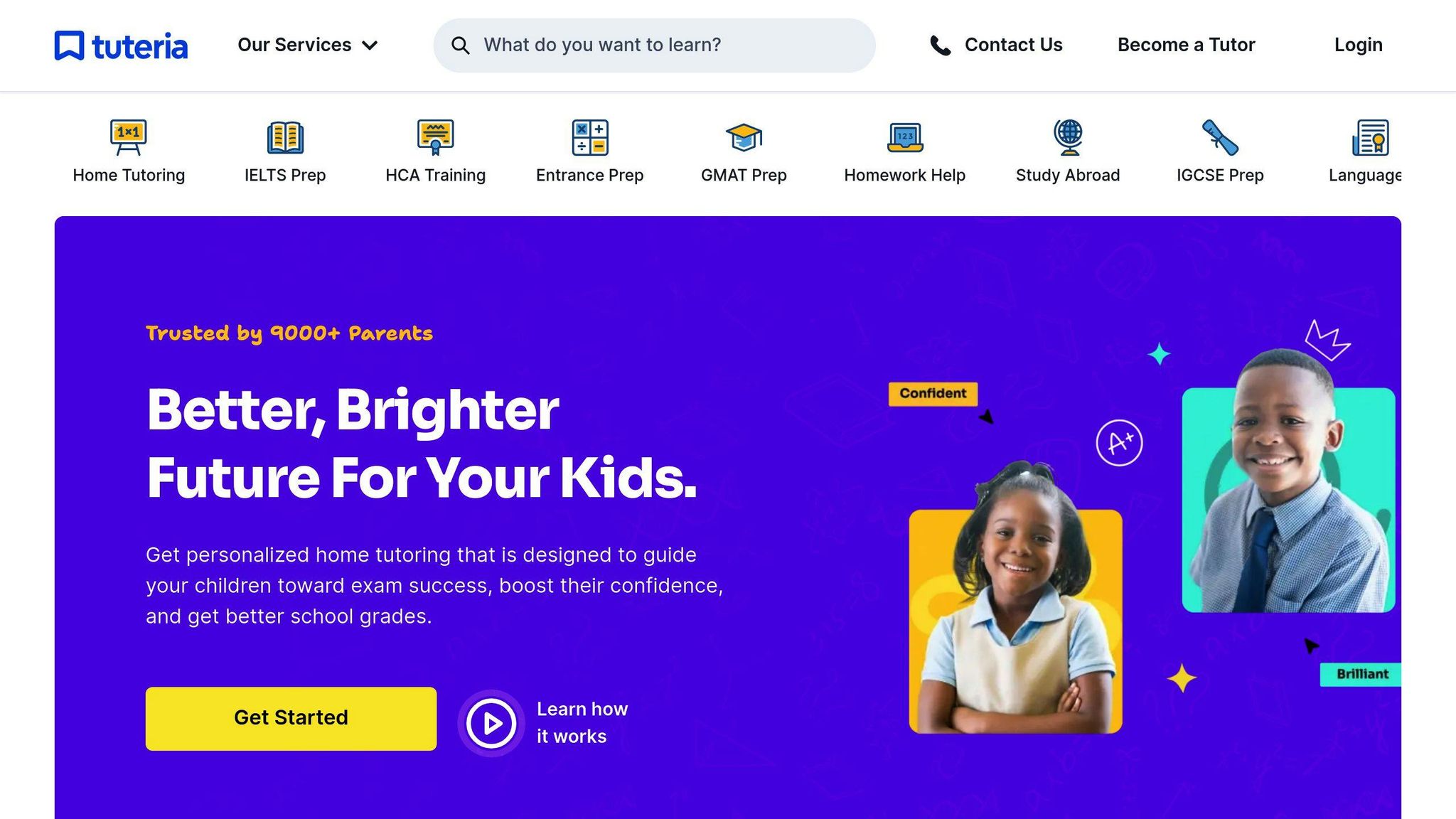
Launched in 2014 in Lagos, Nigeria, Tuteria has made waves in the education space with its peer-to-peer learning model. It’s a key player in Africa’s EdTech scene, addressing challenges unique to the region.
The platform provides services like home tutoring, exam preparation, homeschooling support, and digital skills training. By connecting students with tutors, Tuteria ensures personalized and practical learning experiences, allowing students to progress at their own pace.
One of Tuteria’s strengths is its ability to bring quality education to underserved areas. Through a rigorous tutor selection process and a focus on hands-on training, the platform delivers expert instruction in even the most remote locations. Students can learn skills like programming and data analysis with real-world applications.
Tuteria plays a crucial role in building Africa’s tech talent pool. Its mix of tailored instruction and practical skills development offers a scalable way to prepare individuals for the demands of the digital economy.
This approach is paving the way for other EdTech initiatives in Africa, helping to bridge the digital skills gap across the continent.
2. AltSchool Africa
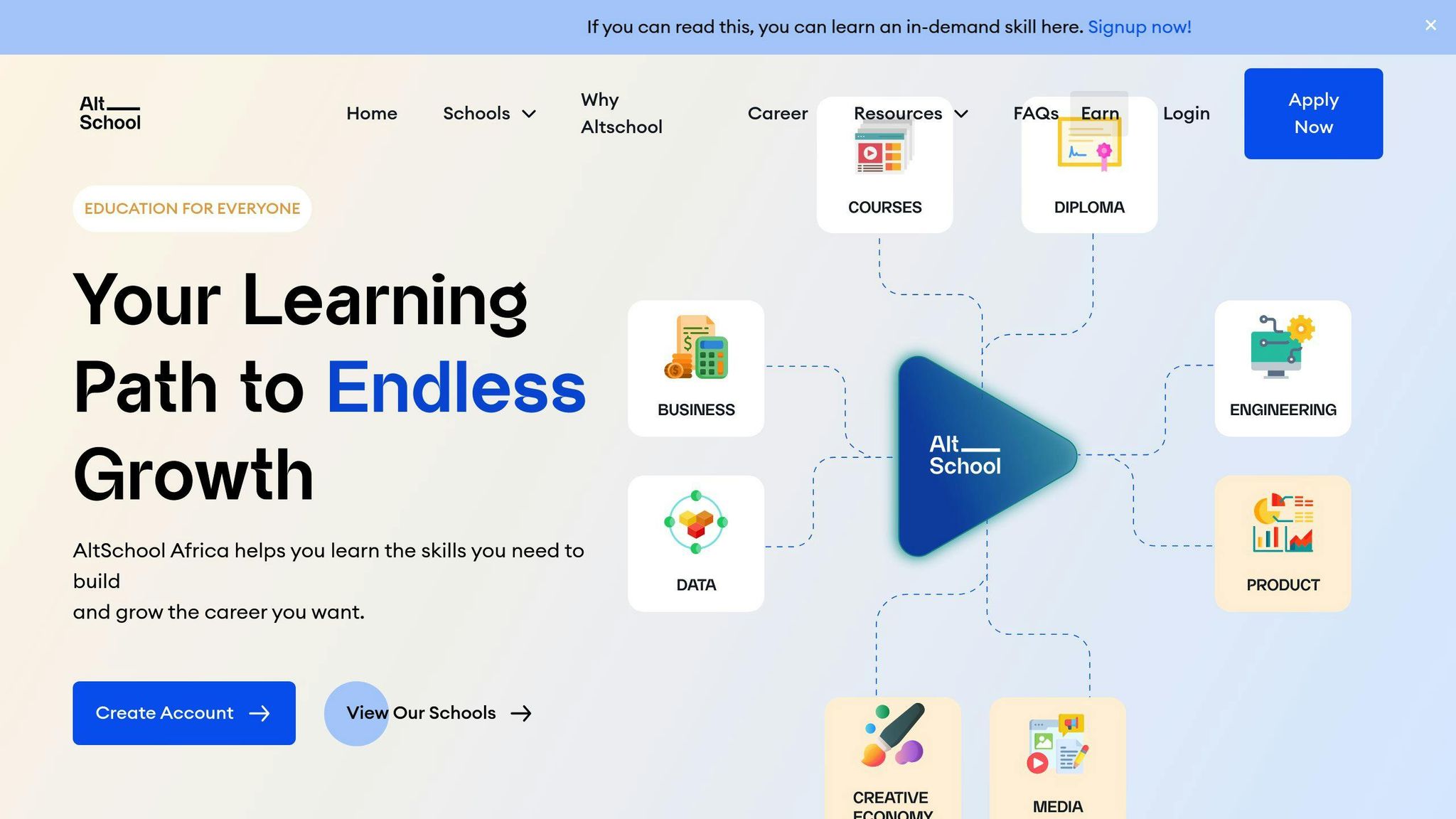
Launched in 2021 in Lagos, Nigeria, AltSchool Africa is making waves in digital skills education. This platform focuses on virtual learning, offering students and professionals the chance to build technical expertise through customized learning experiences.
In collaboration with Binance, AltSchool is training 500 young Africans in areas like software engineering, cybersecurity, and content creation. This initiative tackles a pressing issue: only 2% of Africa’s workforce currently has digital skills.
AltSchool goes beyond the traditional classroom by blending modern technology with tailored content. It provides technical training, career guidance, hands-on projects, and industry networking opportunities, ensuring students are prepared for the job market.
What makes AltSchool stand out is its flexible learning model. Students can progress at their own pace while gaining skills that are directly applicable to real-world jobs.
3. Codepym
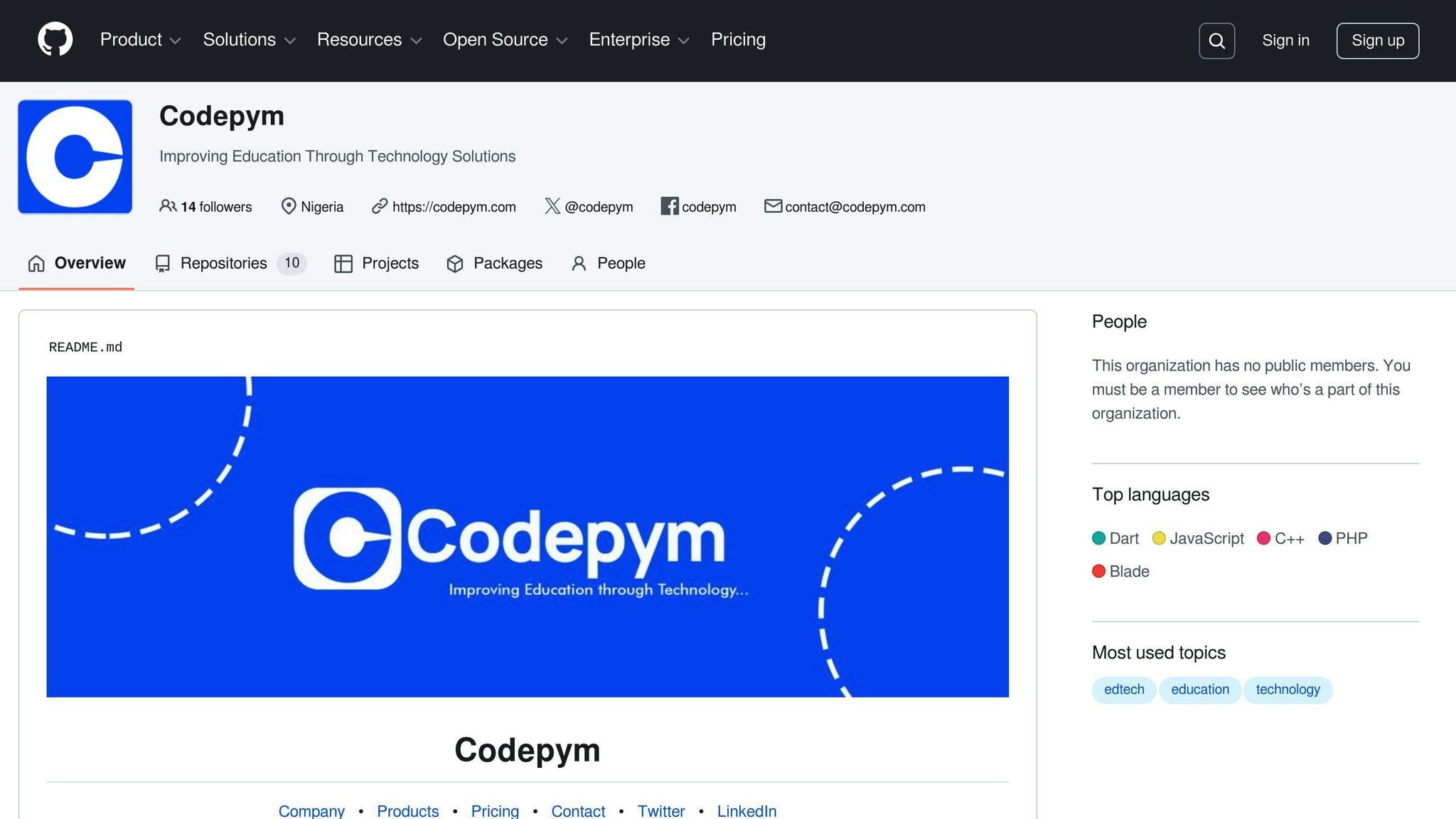
Codepym is an EdTech software company making waves in digital education across West Africa. With only 2% of Africa’s workforce equipped with digital skills, the platform addresses a pressing need for scalable and effective digital education solutions.
The platform offers tools that combine administrative support for educators with interactive learning systems. This mix helps deliver lessons effectively while keeping students actively engaged. By offering customizable teaching platforms and dynamic learning tools, Codepym empowers both teachers and students to achieve their full potential.
What makes Codepym stand out is its focus on practical skills. The platform uses interactive teaching methods, immersive learning environments, and project-based activities to ensure students gain real-world experience. While simplifying administrative tasks, it also prioritizes the quality of education, enabling institutions to provide meaningful digital skills training.
As part of Africa’s expanding EdTech landscape, Codepym continues to adapt to the region’s educational demands. Its solutions not only simplify education delivery but also help students build the digital skills needed for today’s job market. By merging effective teaching tools with hands-on digital training, Codepym plays a key role in narrowing Africa’s digital skills gap.
sbb-itb-dd089af
4. Edukoya
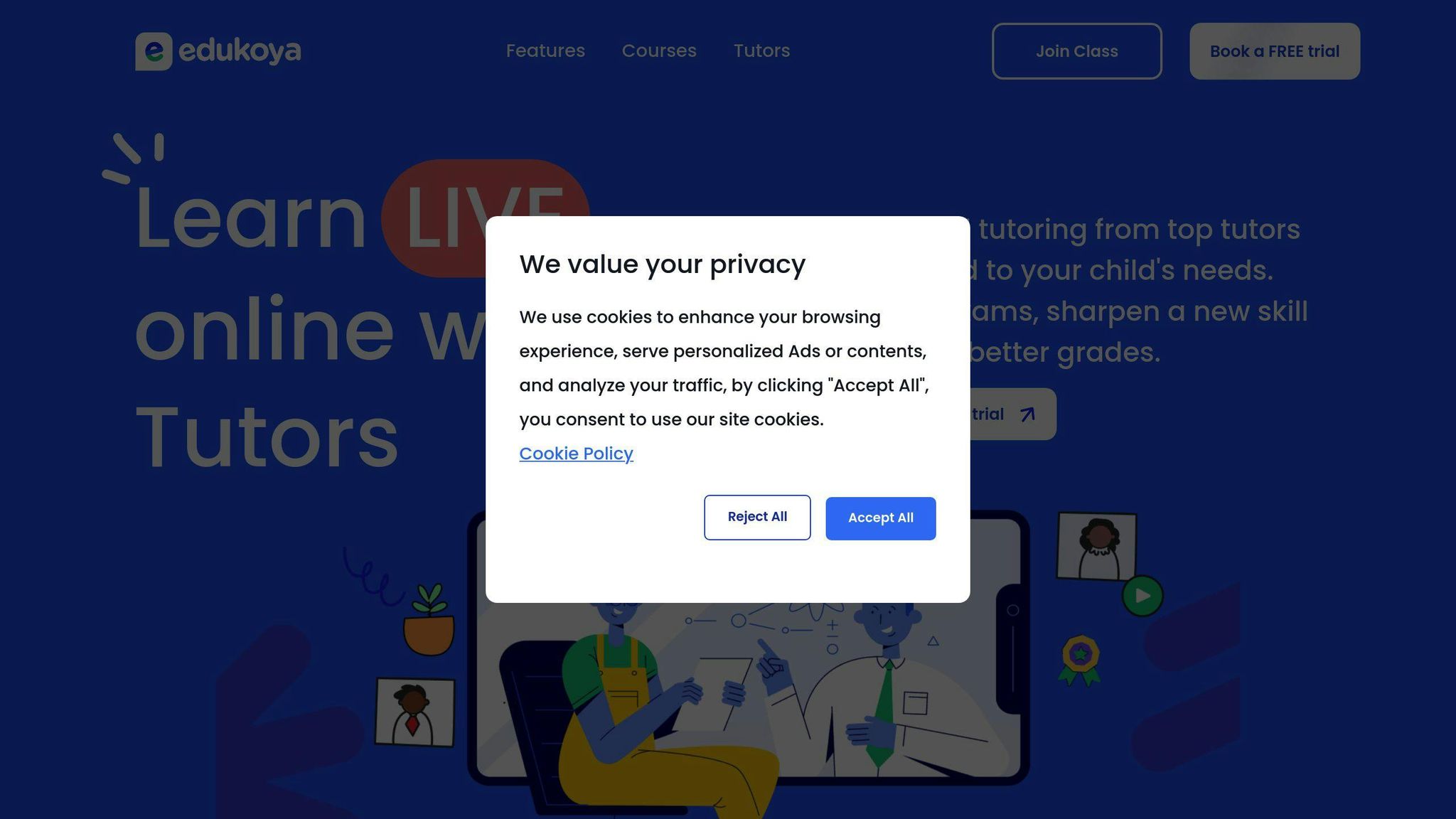
Launched in 2021, Edukoya is reshaping education in Nigeria with its AI-driven platform, designed to meet the unique needs of each student. By combining academic subjects with vocational training, the platform aims to close the digital skills gap, particularly in underserved communities, while keeping education affordable and accessible.
Edukoya provides a wide range of tools that cover both traditional academic topics and practical vocational skills. What makes it stand out is its focus on delivering high-quality education at a cost that more students can manage. With AI creating personalized learning paths, a curriculum that blends theory and practical skills, and a platform designed for ease of use – even in remote areas – Edukoya removes many of the barriers that often prevent students from learning critical digital skills.
By addressing both academic and hands-on vocational training, Edukoya meets the growing demand for digital expertise in today’s fast-changing economy. The platform’s use of AI and carefully selected content creates an engaging learning experience, equipping students with the tools they need to thrive in the digital age. As Edukoya grows, it plays an increasingly important role in building a skilled digital workforce in Nigeria and beyond.
Edukoya showcases how technology can transform learning, offering a forward-thinking model for education in Africa.
5. Teesas
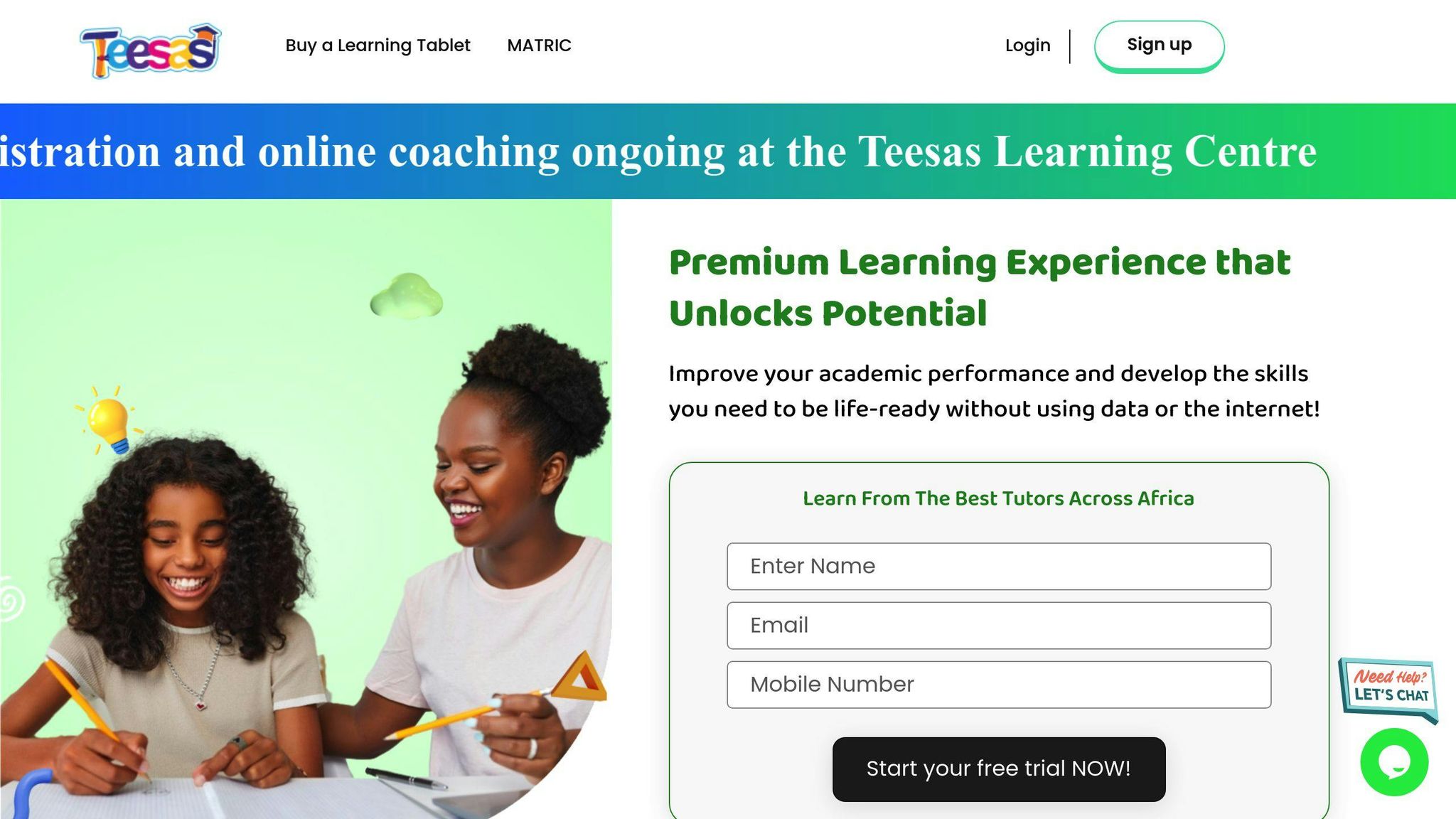
Launched in 2020 in Lagos, Nigeria, Teesas focuses on delivering digital education tailored to local languages and cultural contexts, making it easier for students across Africa to access and understand technical skills.
Teesas takes a dual-language approach, offering educational content in both local African languages and English. This method helps students grasp complex topics more effectively, especially in areas where English isn’t widely spoken. The platform’s app features video tutorials across various subjects, created and delivered by professional educators to ensure quality instruction while addressing cultural nuances.
By integrating local languages and cultural elements, Teesas helps students connect with and understand technical concepts. Its app is designed to work well even in regions with limited infrastructure, catering to different learning styles and ensuring accessibility for underserved communities.
Teesas is a great example of how localized strategies can make digital education more accessible and impactful. By addressing language barriers and considering cultural contexts, the platform supports diverse learning needs and bridges gaps in digital literacy. This approach highlights how education technology can thrive in areas where traditional methods often struggle.
As digital education grows across Africa, Teesas stands out as a model for making learning tools both accessible and relevant, paving the way for other EdTech initiatives in the region.
6. uLesson
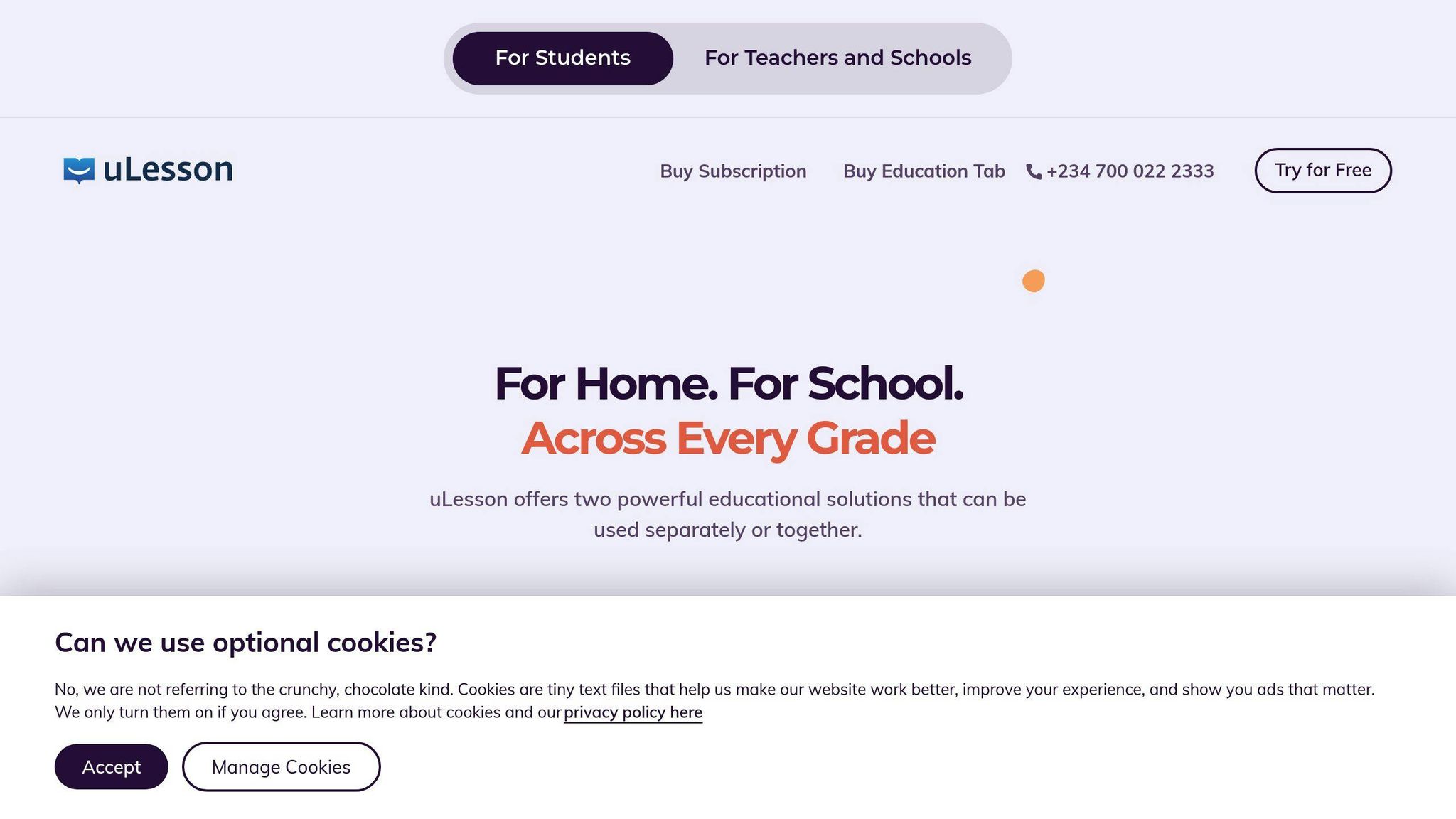
Launched in 2019 in Lagos, Nigeria, uLesson blends interactive tools with structured learning to help students develop essential skills.
The platform provides secondary school students with video lessons, practice quizzes, and interactive tools in core subjects like mathematics, science, and English. By tailoring content to individual learning styles, uLesson makes studying more engaging and effective, especially in areas where quality education is harder to access.
What sets uLesson apart is its focus on affordability and alignment with West African educational standards. This localized approach ensures students can easily connect with the material, making it easier to grasp key concepts and build a solid foundation in digital literacy.
By offering both foundational knowledge and practical skills, uLesson addresses the growing demand for digital expertise in Africa. Its learning model not only helps students succeed academically but also equips them with skills crucial for thriving in today’s tech-driven world.
While uLesson focuses on building essential skills, platforms like eCampus push digital learning even further with their advanced tools.
7. eCampus
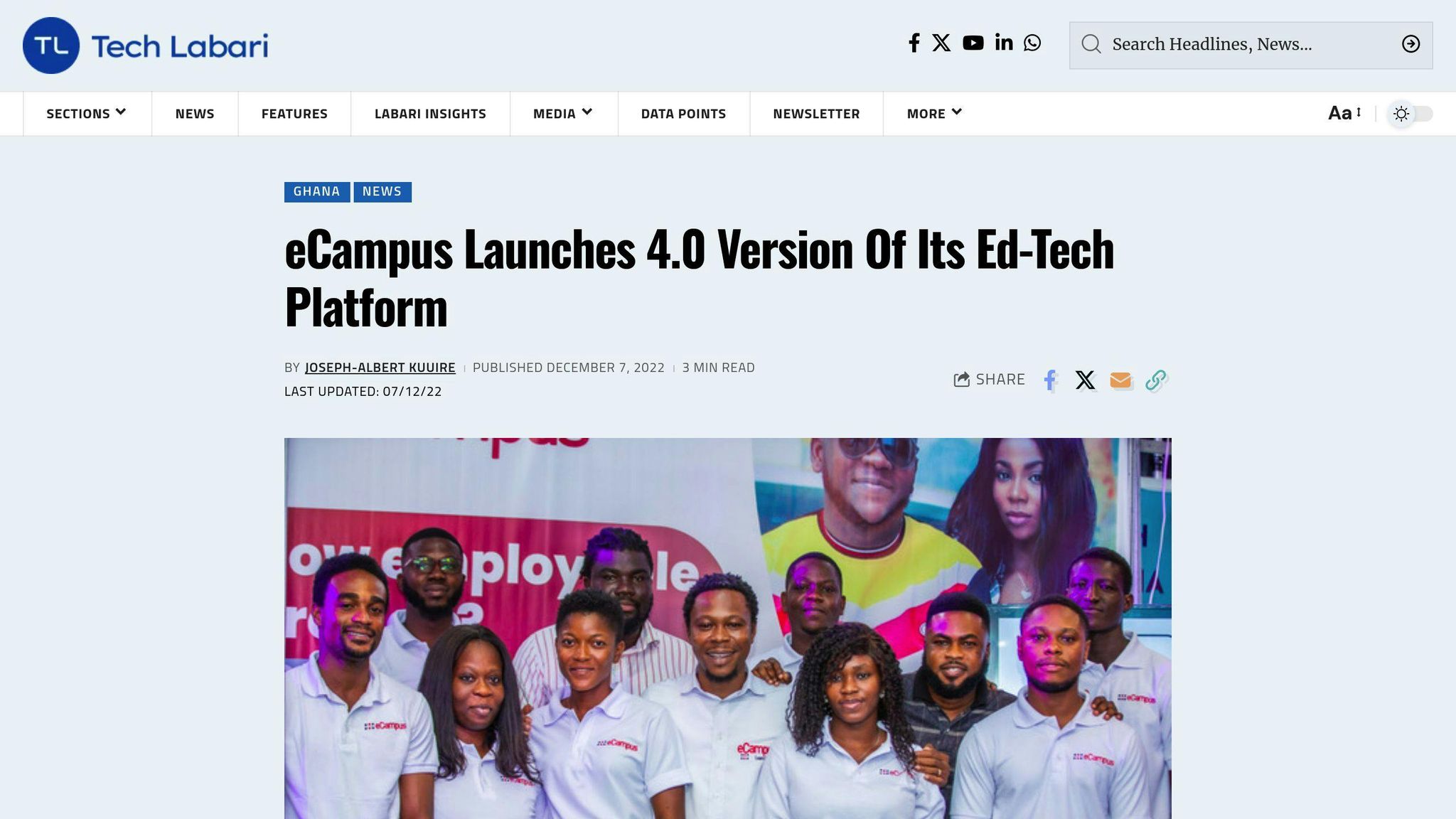
Launched in 2015 in Accra, Ghana, eCampus is an EdTech platform designed to support secondary school and university students with a wide range of educational resources.
The platform combines academic learning with professional and vocational training, helping students develop both core knowledge and specialized digital skills needed in today’s job market.
eCampus provides localized content in various formats, ensuring it aligns with the specific needs and preferences of learners. This approach allows students to access materials that are relevant to their environment and learning style.
By tailoring its programs to meet industry requirements, eCampus equips students with skills that match the demands of Africa’s growing digital economy. This helps tackle the region’s digital skills gap by preparing learners for practical, market-driven roles.
Acting as a centralized hub, eCampus offers higher education courses, professional certifications, and vocational training. Its digital education model increases access to learning opportunities across West Africa, enabling more people to improve their digital expertise.
As a prominent EdTech platform in Africa, eCampus showcases how technology can play a key role in addressing the continent’s digital education challenges.
Conclusion
EdTech startups are reshaping how digital skills are taught across Africa, responding to a growing need for professionals equipped for the tech-driven world. These platforms are making digital training more accessible and better aligned with what the workforce requires.
By 2030, an estimated 230 million jobs in Sub-Saharan Africa will demand digital skills. Startups are stepping up with methods like peer-to-peer learning and AI-driven personalization to meet this demand. For example, a Nairobi entrepreneur increased their revenues by 60% after mastering digital marketing through one of these programs. Success stories like this showcase the expanding ecosystem fueling Africa’s digital transformation.
Collaborations, such as AltSchool’s partnership with Binance, and models like Tuteria’s peer-to-peer learning approach, are narrowing the digital skills gap. These initiatives combine academic knowledge with hands-on training, helping to build a workforce ready for the digital economy.
For those keen on tracking the latest in African EdTech and innovation, platforms like Tech In Africa offer daily updates on startups and technological progress shaping the continent.
The efforts of these startups are driving a shift toward more inclusive digital education, boosting economies and preparing Africa’s workforce for the future. Their growth and fresh ideas will play a key role in tackling the challenges and seizing the opportunities of the digital era.
Related Blog Posts
- E-commerce in Africa: 2025 Market Analysis and Trends
- 8 Solutions to Common African E-commerce Challenges
- Ride sharing and ride hailing startups in Africa
- The Best African Tech Newsletters to Follow





